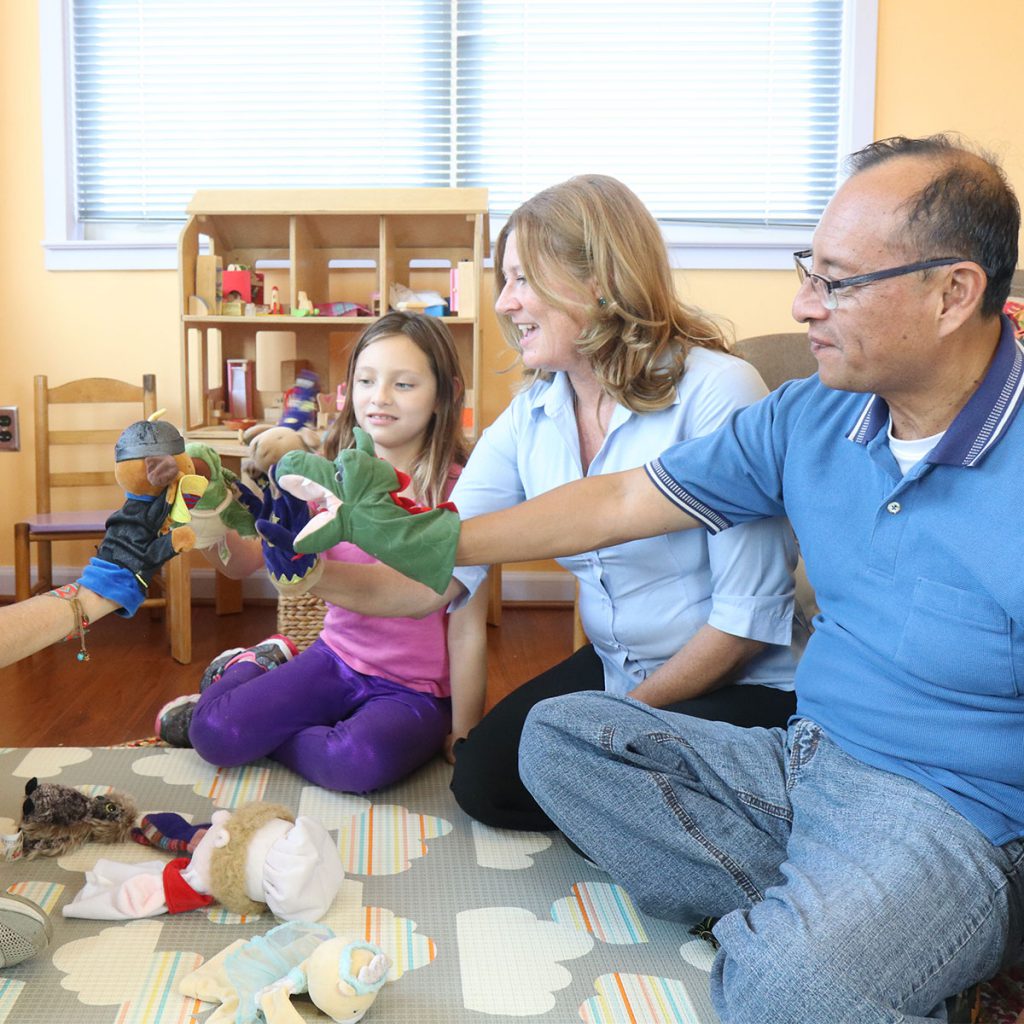For National Children’s Mental Health Awareness Day (May 6, 2019), I make a call to parents/caretakers of young children to roll up our sleeves, get down on the floor and… play! Playing for a few minutes as part of daily routines is one of the best investments we can make in our children’s mental health.
I am referring to non-directive play, which is pretend play guided by the children, with the adult(s) following the child’s lead. In our culture, where most of our young children’s day is full of structured (some times over-scheduled) activities, there is very little time left for these precious moments of “free play.” Here are some of the benefits for social-emotional development in early childhood, and the foundation of life-long mental health.
- Child-lead play gives children
the opportunity to fine-tune their ability to make choices, experiment with new
skills, and assert their personalities. - Children have the innate tendency
to create the imaginary story lines that they need for expressing emotions and
process difficult experiences. They know well that play is one of the few
activities when they are not performing or being evaluated. Hence, the
importance of the adult not directing the play, which could intervene with the
child’s inner guidance. - An imaginary story line usually
has a conflict…the perfect social laboratory for children to learn and hone-in
problem solving skills. - The pretend roles that children
choose during play give us a hint of their wishes and preferences. For example:
does the child prefer to be the doctor (leader) or the patient (follower)
during pretend doctor’s play?) - Following the children’s lead
conveys to our kids the message that we care enough to be immersed in their
world; therefore cultivating a reciprocal relationship of mutual love and
respect for who we are. - By observing the themes that
are repeated in the play, we can understand how the child is making sense of
his/her life (for example: a child enacting a fight between parents in the doll
house may be coping with his/her parents’ divorce). - When we allow children to take
on the roles of caretakers (teacher, doctor, parent) with peers or adults, we
are giving them the gift of experiencing responsibility and empathy, which can
reduce aggressive behavior.
I have been amazed with the power of non-directive play both in my clinical/consulting practice and with my own children. Playing is fascinating, free and fun. Let’s play more, shall we?
For more information, see Scott Barry Kauffman summary of research that has supported the benefits of pretend play for child development here.
Also, How to Make the Most of Play Time, according to your child’s age. Enjoy!


